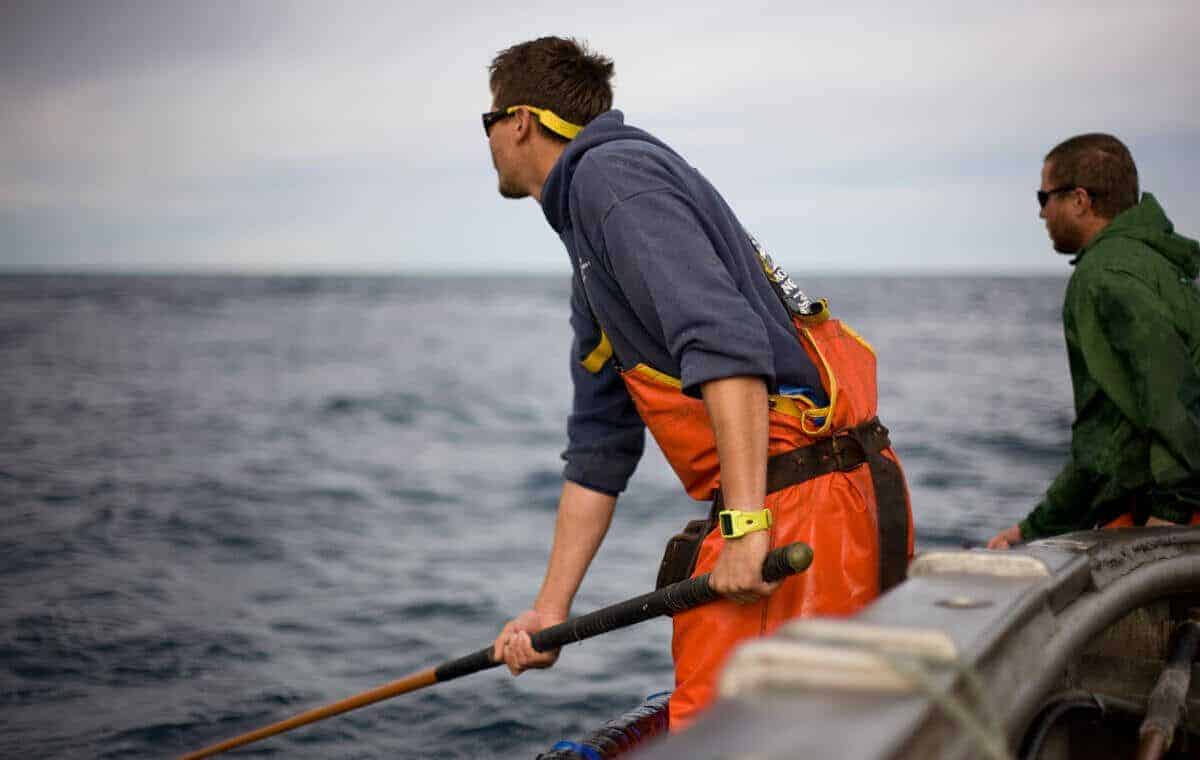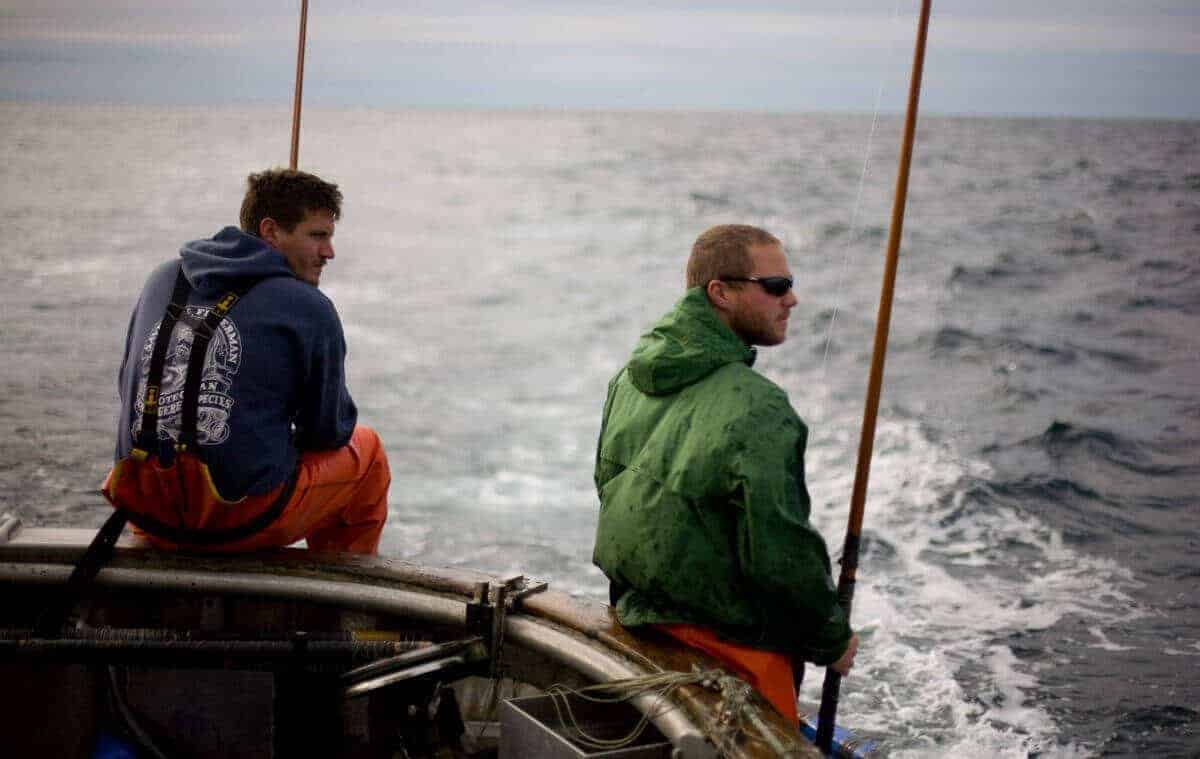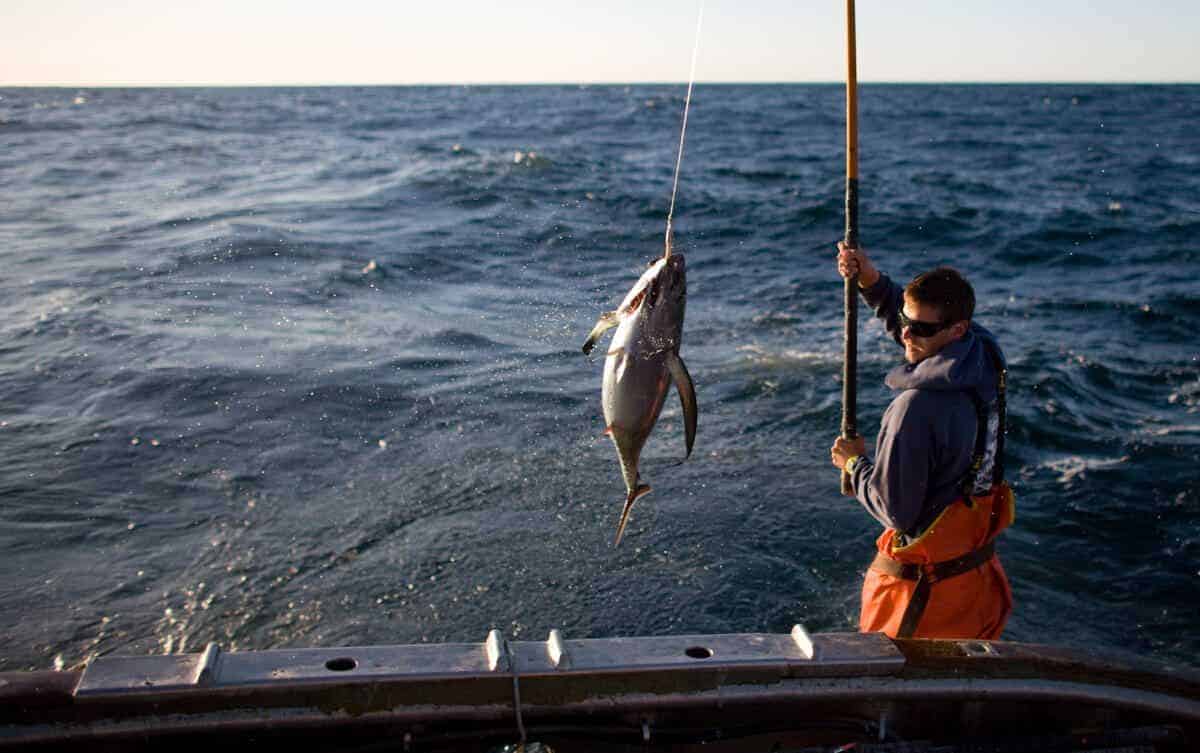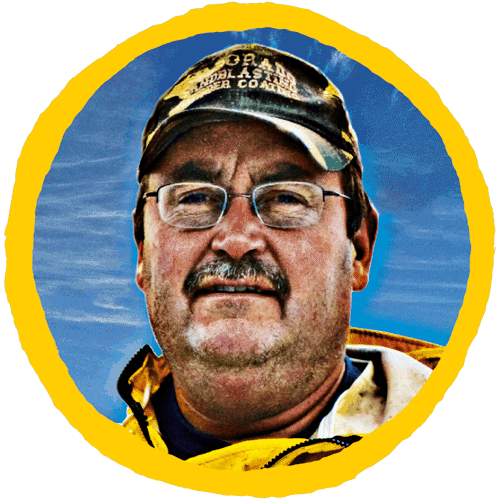Tradition and future in one fish
Facts & figures
San Diego
The coast of sunny southwest USA is packed with albacore tuna fish. However, this is not a given; weather, wind and water determine the catch. The local fishermen search the waters daily for a school of tuna.



Fishing method
Jack and his men fish with a pole and line. Before they get started, they tie a rope around their waist and attach it to the boat, so they won’t go overboard when the fish pull too hard.
Sunny San Diego
With a population of over 1 million people you can hardly call San Diego a remote fishing spot. But if you ship out to the Pacific Ocean from the harbour, you’ll be far away from life as you know it in no-time. Not only can you find albacore tuna here, but also bluefin-, yellowfin- and bigeye tuna. Actually, not only San Diego is an excellent spot, the entire West Coast has busy harbours. Jack and only one other boat use San Diego as their home port.

Albacore tuna
The albacore- or white tuna - is, you guessed it, much lighter in colour than the rest of its family. This fish doesn’t get really big, but it makes up for it in nutritional value: because the albacore tuna only eats sardines and anchovies, it’s packed with omega 3 fatty acids. A true guilt-free pleasure.
Albacore tuna in spring water – 3-pack
Albacore tuna in olive oil 3-pack
Albacore tuna in olive oil
Albacore tuna in olive oil
Albacore tuna in sunflower oil (160g)
Albacore tuna in water
Albacore tuna in water – no salt
Albacore tuna in water (160g)
Pasta sauce with tuna Arrabiata
Pasta sauce with Tuna Puttanesca
Albacore tuna in olive oil (glass)
‘Technological developments are not always good for the environment.’
Jack has been fishing with love for the ocean for over 40 years. ‘I could probably catch more with other methods, but those are not always the best for the environment.’ And the environment is what jack holds highly. Not sick if tuna after 40 years? ‘Not even. I like to eat it straight from the tin!’



